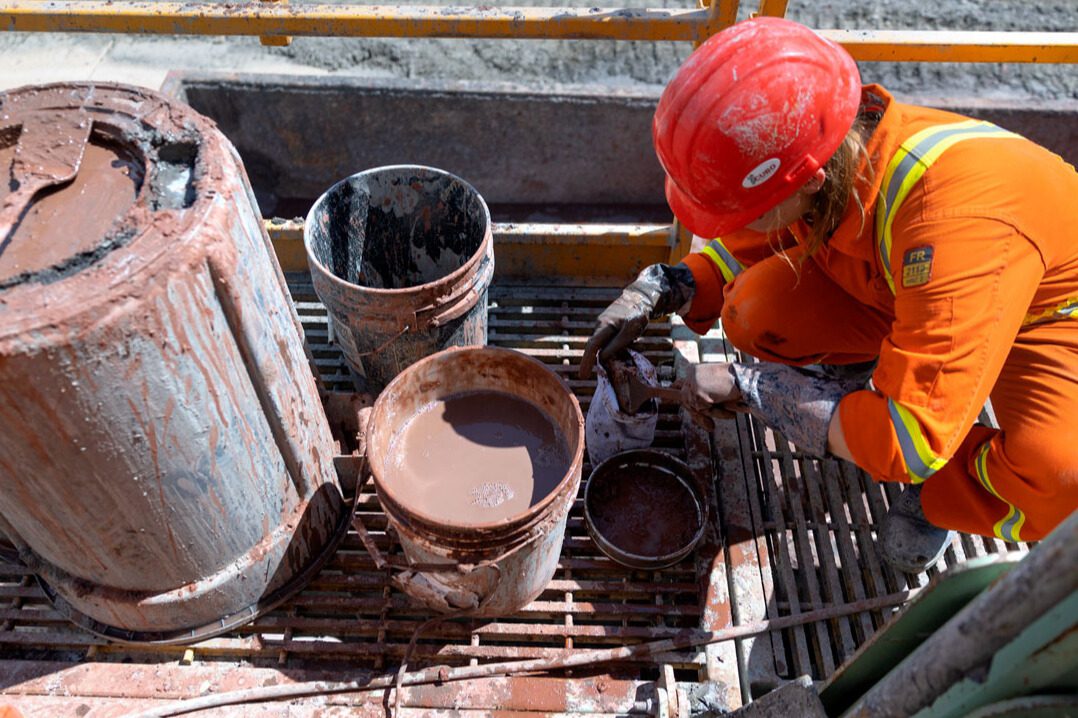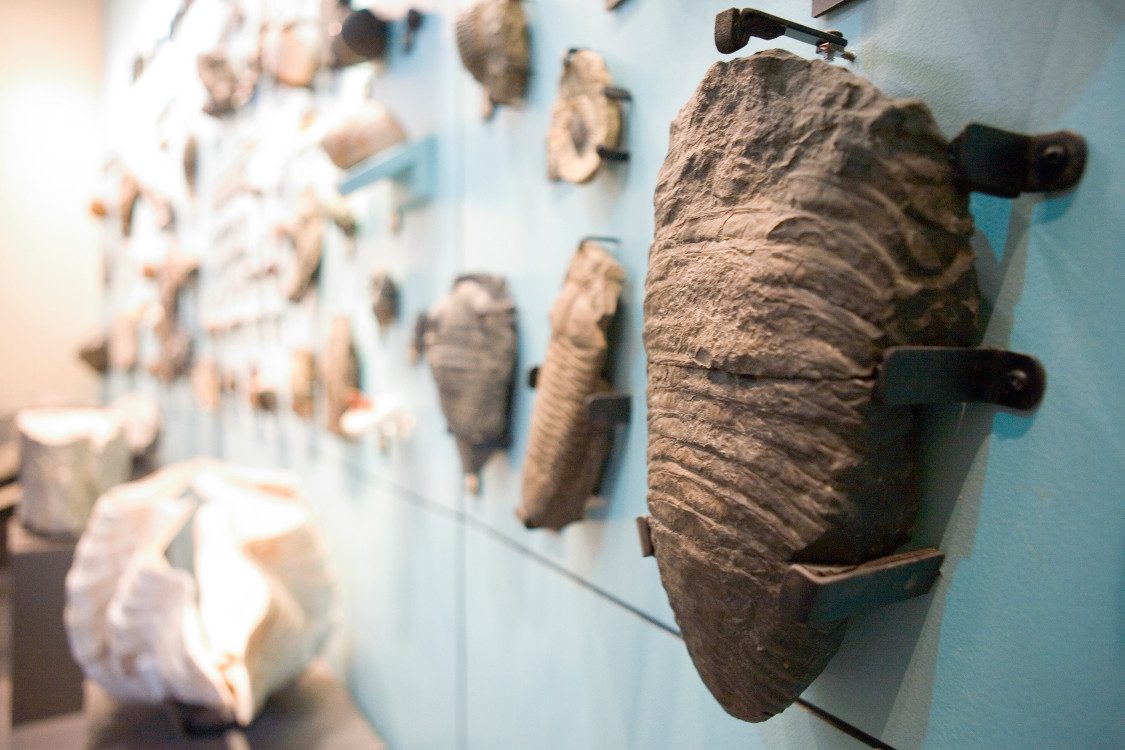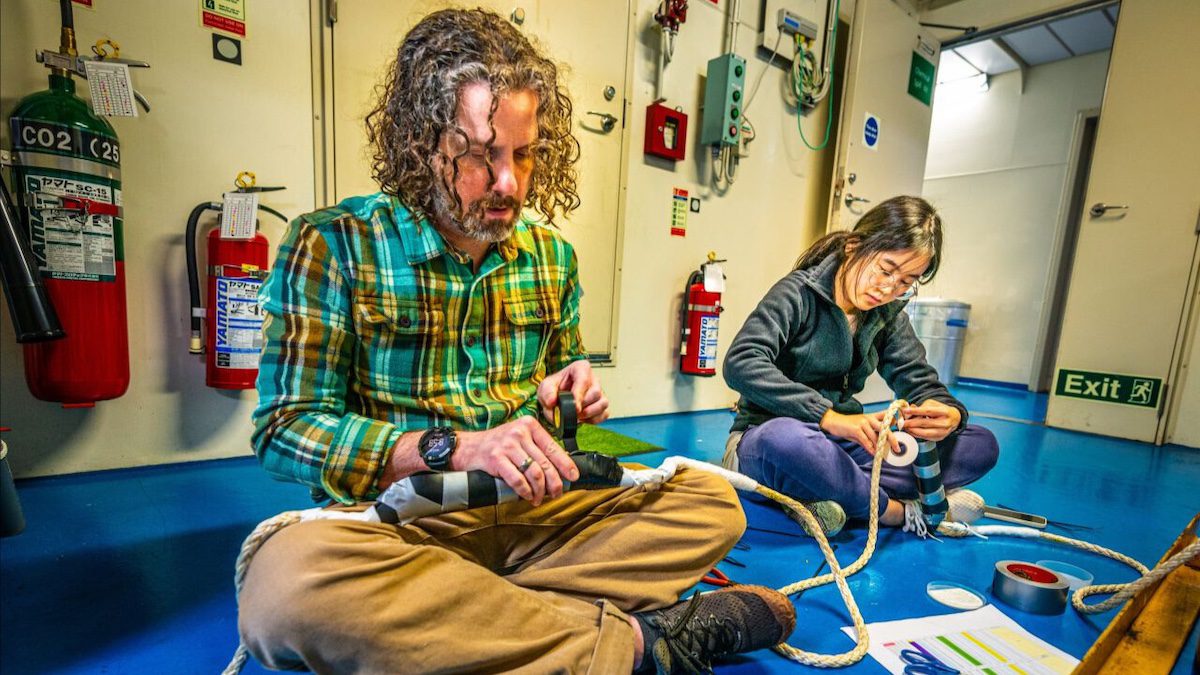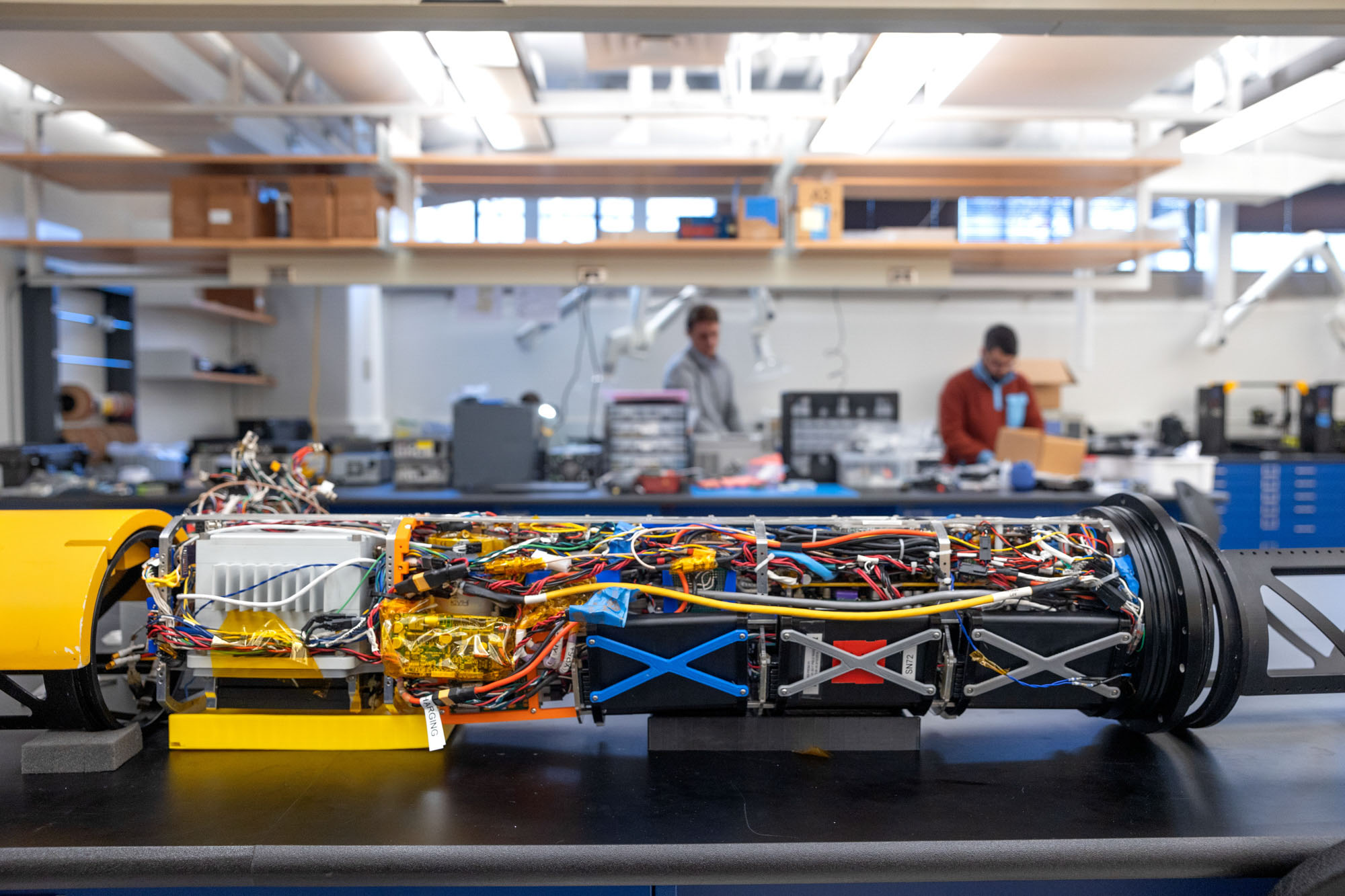The graduate program in geological sciences offers students broad training in basic sciences, as well as field, theoretical, and practical experience through research in their chosen specialty. Cornell’s program provides flexibility for students to engage across disciplines, with strengths in areas such as geophysics, geochemistry, petrology, structural geology, marine ecology, and energy resources. Interdisciplinary study opportunities exist in marine ecology, water resources, applied geological science, and various other fields.

Program Highlights
-
Research Opportunities
Ph.D. students have access to a wide range of research programs, such as those focused on geophysics, space-based geodetic studies, tectonics, sedimentation, planetary science, and more. Field research locations include Alaska, Chile, Hawaii, Tibet, and others.
-
Fellowships
Various fellowships, including department and Cornell Fellowships, are available to support students. Ph.D. students, in particular, may apply for prestigious national fellowships, such as the NSF and NASA fellowships.
Concentrations
-
Economic Geology
Engineering Geology
Environmental Geophysics
General Geology
Geobiology
Geochemistry and Isotope Geology -
Geohydrology
Geomorphology
Geophysics
Geotectonics
Marine Geology (minor)
Mineralogy -
Ocean Science and Technology
Paleontology
Petroleum Geology
Petrology
Planetary Geology
Precambrian Geology -
Quaternary Geology
Rock Mechanics
Sedimentology
Seismology
Stratigraphy
Structural Geology
Program at a Glance
- Minor Advisors: Ph.D. students must choose two or more minor advisors, with at least one advisor representing a minor from outside geological sciences.
- Qualifying Exam: Ph.D. students must take a qualifying examination before the end of their third semester. This exam assesses the candidate’s readiness for advanced studies and helps the Special Committee plan the student’s program.
- Thesis: Ph.D. students must submit a dissertation acceptable to the Special Committee and the Graduate School.
- Research Focus: Ph.D. students generally focus on more advanced research, with the final two to three years of their program dedicated to dissertation work.
- Financial Aid Duration: Ph.D. students typically receive financial aid for up to five years, contingent on satisfactory academic progress.
- Interdisciplinary Opportunities: Ph.D. students have significant flexibility to engage in interdisciplinary research across various fields, including those related to planetary science, geophysics, and marine ecosystems.
Additional Opportunities
-
![Tubular Icefin robot on a table in a lab. Outer shell is off and many wires and circuits are showing. Two researchers are at tables in the background.]()
Centers, Facilities and Institutes
The Department of Earth and Atmospheric Sciences is home to several cutting-edge centers, labs, and institutes that drive our groundbreaking research.
-
![Two EAS students stand inside the Ecology House Contest construction they were part of creating.]()
Student Groups and Organizations
Explore the diverse range of student organizations and clubs available to enhance your academic journey and connect with peers who share your interests.

-
Museum of the Earth
The Paleontological Research Institution, located near the campus, has world-renowned facilities and collections available to students interested in paleontology.
Contact
-
Director of Graduate Studies
Matthew Pritchard
pritchard@cornell.edu
607-255-4870 -
Assistant Director of Graduate Programs and Course Coordinator
Sierra Henry
slh297@cornell.edu
607-255-8737


